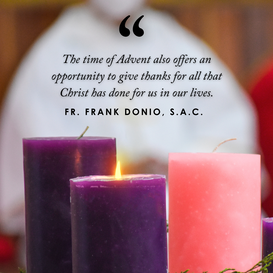 Many people do not like to wait. Western culture is instant. Waiting in line or waiting for something to arrive often creates impatience. The oft said line “patience is a virtue,” seems not to apply. We want whatever the thing is according to our schedule. God’s time, though, is not our time. We can be as impatient as we wish, but God will decide when the time is right. We need to decide if we are willing to wait, trust, and prepare. Christ is in our lives and wants to deepen his presence in us. Advent offers us a time to patiently wait for Christ who will come at the end of time and the one who is already incarnate among us which is what we celebrate at Christmas. The time of Advent also offers an opportunity to give thanks for all that Christ has done for us in our lives. It is a call to conversion of heart and deeper life in him. This is part of our preparation as we patiently wait. Conversion of heart may be a call to the Sacrament of Penance, so that we can receive the Eucharist in fuller love and openness. The Catholic Apostolate Center provides many resources for the Advent and Christmas seasons. We invite you to explore them and hope that they assist you in your preparation and waiting. For those in the United States, may you have a blessed Thanksgiving. For all, may you have a good and prayerful beginning to the Advent season. In God, the Infinite Love, Fr. Frank
0 Comments
“We Christians are called upon to preserve and spread the joy of waiting: we await God Who loves us infinitely and at the same time we are awaited by Him.” – Pope Francis
Over many years, I have been honored to accompany others in their vocation discernment and growth in faith through spiritual direction. Often, as is the case now, it is with young adults – undergraduate and graduate students, seminarians, and those beginning their work careers. In almost every instance, they try to prepare themselves well for the Lenten season, but rarely think about preparing for the Advent season. For many, the end of an academic semester as well as the gatherings, travel, and shopping for Thanksgiving and Christmas tend to leave little time to focus on Advent preparation and living. May I invite you, as I do them, to enter well into the waiting of Advent? It is meant to be a quiet time of deeper reflection on the coming of the Messiah, not just the first coming (the Incarnation) that we celebrate at Christmas, but the second coming of Christ at the end of time. The candles of the Advent wreath will be lit one after the other and the time will go by quickly. May we not let it not slip by, but use it well as a time of prayer, reflection, discernment, and deepening our encounter with Christ, through ongoing conversion of heart! May the Charity of Christ urge us on! For more resources to accompany you during the Advent season, please click here. Happy New Year! We have officially brought the Church year to a close and have entered into a new liturgical year with the first week of Advent. It is a time of new beginnings and yet a profound time of waiting and preparation as we anticipate the joy of the birth of a tiny babe in a manger. I find it interesting that this time of waiting comes right at the beginning of the new liturgical year. In the secular world, New Year’s celebrations are immediate and urgent. We count down to the strike of midnight, kiss our loved ones, announce our resolutions, and toast the entrance of the next phase. Some of us celebrate the end of another passing year with relief. Some feel a deep hope and longing that the year to come will bring with it some rest and release from the trials and tribulations of the previous year. Others celebrate the successes of the year and look forward to hopeful continued success. No matter which category you fall into, the secular New Year brings with it some sense of urgency, of immediate change. In the Church’s liturgical year, we celebrate our “New Year’s Eve” with the celebration of Christ the King on the last Sunday before Advent. In Pope Francis’s 2013 homily he reminded us, “Jesus is the center of creation; and so the attitude demanded of us as true believers is that of recognizing and accepting in our lives the centrality of Jesus Christ, in our thoughts, in our words and in our works.” Pope Pius XI instituted this celebration in 1925 to help remind us that, “while governments and philosophies come and go, Christ reigns as King forever.” Can you feel it? Can you feel the excitement, hope, and assuredness infiltrating you as a believer of Christ, King of the Universe? And then we wait… This stark contrast brings with it the perfect time for reflection and re-evaluation. In thinking and reflecting on the Advent season at the beginning of this new liturgical year, I’m struck by the images that come to mind. The slow burn of a candle in the window, darkness in anticipation of the light of morning. We are searching, seeking, wanting, waiting. “Not all who wander are lost,” J.R.R. Tolkien wrote. Over the years it has become a fairly well known quote. How does this quote speak to you this Advent season? At times we may wander through the ebb and flow of our daily lives and this quote seems to reach out to us in an attempt to comfort us when we find ourselves in this place. But let’s take a deeper look at this particular quote. What does it mean to wander? To wander is to walk or move in a leisurely, casual, or aimless way. In what areas of your life have you been wandering? More importantly, do you know where you are going? Advent is the perfect time for reflection and re-evaluation. “Not all who wander are lost.” Is it true? Sometimes we need the casual and the leisurely. It can be good to have a moment to take a breath. This time of Advent at the beginning of our new liturgical year, though, is a time to challenge ourselves. Are we still wandering? Have we lost sight of our aim? Perhaps Advent is calling us out of our time of wandering and into a time of wondering. To wonder is to desire or be curious about something; to feel amazement, to marvel. What is your heart longing for this Advent season? Where in your life are you being called into a deeper relationship with Christ, King of the Universe? He is coming and His desire to know and love us is so great that He is coming as a vulnerable and dependent baby in a manger. “They name him Wonder-Counselor, God-Hero, Faith-Forever, Prince of Peace.” (Isaiah 9:5) He is coming. Are you ready? This season, let us remember, all that WONDER as they behold the Christ child will never be lost. Question for Reflection: What is your heart longing for this Advent season? For resources to prepare you for the Advent season, please click here. I distinctly remember a few years ago when I looked a friend in the eyes over coffee just prior to Advent and said, “I’m so grateful that Advent is about to start - I’m ready for other people to be waiting, too.” The reality is that we spend a lot of our lives waiting - waiting for the light to turn green, waiting for a relationship to be mended, or waiting for the Lord to reveal more of His plan to us. The waiting is inescapable - and yet it is so easy to feel like waiting equals failure. Our world would have us believe a lot of lies about waiting - mainly that waiting means that God isn’t faithful, that He has somehow forgotten us. There have been so many times in my life where I have believed the lie that God is not faithful in the waiting - that the waiting is wasted. In a season of life that contains its fair share of waiting, I have had to remind myself again and again that He is in the waiting. As Christians, we know there is such a thing as waiting well— as not only seeking God in the waiting, but knowing that God is seeking us in the waiting. I’m sure that the relief that I experienced in that conversation with a friend a few years ago speaks a lot of truth about the ache of our own hearts - an ache that is lived out during Advent. The Church gives us the Advent season not only to prepare our hearts for the coming of our Lord at Christmas, but to also remind ourselves of the beauty in the waiting. The beauty of being a Christian is that we CAN hope in the waiting - we can hope in the waiting because we know Who we are waiting for. “Let us allow ourselves, then,” Pope Francis encourages, “to teach hope, to faithfully await the coming of the Lord, and whatever desert we might have in our life will become a flowering garden.” This Advent, I am going to breathe another sigh of relief and of gratitude that others are waiting with me, but that we have a God worth waiting for. May we as a Church wait hopefully for the coming of our Lord together, knowing that He is in the waiting. And may the desert of our waiting reveal to us, as Pope Francis said, a flowering garden this Christmas. “Practice patience toward everyone and especially toward yourself. Never be disturbed because of your imperfections but always get up bravely after a fall.” -St. Francis de Sales A few years ago, I had the opportunity to travel to Rome, Italy. To this day, the pilgrimage showers graces into my life. One day on the pilgrimage, we went to the Basilica of Sant’Agostino and prayed in front of a painting by Caravaggio called the Madonna di Loreto. In it, Caravaggio paints dirty, unkempt pilgrims kneeling in front of Our Lady and Jesus. Two years later, the image is still embedded in my mind. The Rome pilgrimage seemed to be a small microcosm of my life. My struggles and weaknesses were the same struggles and weaknesses I encountered back at home and work, yet in Rome they had a different weight. My frustrations with my weaknesses were still there, but it wasn’t until I was looking up at that painting that I realized that the pilgrimage was a process. My sin and weakness, my toil, my striving for sanctity—all of this was a process. The walking, the waiting, the impatience, the stumbling, the praying, the joy, the suffering—all was part of my pilgrimage and contributed to the end or goal: sanctity. I found myself praying for patience, and was informed by a fellow pilgrim that the root word of patience is “to suffer.” I found this definition fitting for the journey. Today, we are all on a pilgrimage aimed toward Heaven. In my walk, I find myself quickly frustrated at my stumbles, my repeated sin (that for some reason I just cannot get over), my judgment, my lack of love, and the list could go on. This frustration with the pace of my walk on the pilgrimage to salvation is not helpful for the walk—it is inhibiting. My walk requires patience with others and with myself. Looking at that painting by Caravaggio, I realized that we are the pilgrims—dirty from the journey, imperfect, on our knees asking Our Lady for the gift of her Son. He receives all of us as we are on this walk, and patience in the process will lend to an easier recovery after a stumble, a lighter load to carry. Let us grant ourselves patience throughout our pilgrimage to our end, Jesus Christ. As St. Teresa of Calcutta reminds us, “We have only today. Let us begin.” Lately, I have found myself in circumstances of trial and uncertainty, unsure where the Lord is in the midst of everything. The waiting certainly parallels the season of Advent in which we await the coming of Our Lord, the Messiah. Waiting is painful and uncertainty requires trust, both of which my control-hungry self wrestles with. Our Lady of Guadalupe, whose feast we celebrate today, is the remedy to our fear and doubt. There’s something unique about the portrayal of Our Lady of Guadalupe: she wears a black belt. In the Aztec religion, a black belt indicates someone who is with child, showing that She too is waiting for Christ in solidarity. She wants to wrap her motherly love and protection over us, to mother us through the waiting, through the anticipation, and straight to Her Son Jesus Christ. Our Lady came to peoples who were deeply enthralled in the Aztec religion, with angry gods who required sacrifice. She spoke a language they understood. The image left on St. Juan Diego’s cloak for the people of what is now Mexico destroyed the power of the Aztec gods and elevated the glory of Her Son. She wants to do the same for you this Advent season. Look at these words she spoke to Juan Diego, the simple farmer turned saint, “My dear little son, I love you. I desire you to know who I am. I am the ever-virgin Mary, Mother of the true God who gives life and maintains existence.” In my circumstances, I am comforted to know that I am not abandoned. I have a Mother who will fight for me, exclaiming, “Let not your heart be disturbed. Am I not here who is your Mother? Are you not under my protection? Am I not your health? Are you not happy within my fold? What else do you wish? Do not be grieved or disturbed by anything.” As we wait for the coming of the Messiah, find comfort that Our Lady waits with us. From the moment she encountered the Angel Gabriel, to searching for a place to give birth, to fleeing to the desert, to the painful prophecy of Simeon, to the loss of Her child for three days, to the witness of His persecution, to the foot of the Cross, Mary waited. Mary waited in faith of the Father’s goodness, exclaiming, “be it done unto me according to thy will.” Just like in the image of Our Lady of Guadalupe, pregnant with Our Lord, Our Lady knows how to wait with peace. She wants to give you Her peace; she wants to speak your language, love you where you are, and guide you to the joy of the coming of the Lord. “I will wait; I will wait for you.” Call it my theme song. It’s a chorus I’ve been repeating to God for months now. Whenever I get impatient or frustrated, I begin to pray with these words from the Mumford and Sons song. It’s less of a prayer that implies God is not working in my life and more of a concession to not knowing exactly how. It’s a surrendering of control, a transfer of the ego away from the self—and trying to be alright with the process. The past 10 months have been a time of both joyful anticipation and relinquishing control. I am engaged and will be getting married in about one month’s time. For the majority of our relationship, my fiancé and I have been praying about where to live, discerning everywhere from Denver to San Antonio to Washington, D.C. We’ve been doing all of this in the midst of something most find insane: long-distance. It’s a journey we felt called into rather than one either of us would have chosen. There are times when I’ve felt like the Israelites wandering the desert sands. I’ve looked up at God and shouted, “where are we going!?” I’ve picked up the flakes of hoar frost on the ground, this food from heaven, and said to Him, “what is it?”—the literal translation of the Hebrew word manna. I haven’t always liked the manna the Lord has given me, nor can I claim to have responded with the confidence and joy that Our Blessed Mother had in her “fiat” to God at the Annunciation when she said, “Let it be done to me according to thy word.” (Lk 1:38). Most of the time, I have to fight the temptation to join the hungry and tired Israelites’ grumbling. I have to fight to say words that don’t come naturally to me as a human being: “I will wait,” “thank you,” and “fiat.” Jesus and Mary teach me the appropriate human posture in response to God’s plan: surrender and thanksgiving in the midst of the unknown or in times of suffering. The most beautiful example of this occurs right before Christ’s Passion. At the Last Supper, knowing fully of his impending torture and death, Christ gave thanks, blessed bread and broke it (cf Mt. 26:27). Moments later, at the height of his spiritual and emotional passion in the Garden of Gethsemane, Christ uttered words akin to those of his mother about thirty-three years earlier, “not my will, but yours be done” (Lk. 22:42). Meditating upon Jesus and Mary’s examples throughout my engagement and long-distance relationship has enabled me to say many, many times, “I will wait,” “fiat,” and “thank you”—sometimes feebly, sometimes resolutely. I have come to learn that these words are the foundation of the Christian life. They are the manna which helps move us forward in our desert wanderings. They enable the waiting period, the time of desolation, to be not only bearable, but fruitful, joyful. They are the wellsprings of life, the oases in the desert that refresh our souls. Living eucharistically and receptively has given me the strength to say, “Yes, Lord. I will wait; I will wait for you and your plan for my life. I will wait joyfully, with hopeful anticipation as your plan unfolds—knowing that through suffering you lead me to resurrection. And I will live attempting always with your help to give thanks in the midst of the waiting, just as Christ gave thanks before his Passion. I will say ‘your will be done’ with Mary. I will wait for you to turn the desert before me into the Promised Land. I will wait; I will wait for you.”
Waiting. Who likes to wait? As far as I can remember, I have never been very patient. I speak too fast, I start projects but often never finish them, and I tap my foot in long lines while sighing loudly so everyone can hear me. I’m very impatient, and recognize that I could always use more humility in my life. Over time and through prayer, I have begun to change my perspective. I realized that waiting can be used as a time for preparation, a chance to reflect. It can be a time to mend, a time to forgive or to be forgiven, and it can also be a time to rid my life of things that encourage an impatient lifestyle. In Advent especially, I have sometimes found it difficult to focus my attention on preparing my heart for Christ.
As Catholics, we do quite a bit of waiting, especially during Advent. It is a time to prepare our hearts and minds for the coming of Christ Himself. These four weeks help us remember why we need Jesus in our lives and in our hearts. In the past few weeks of blog posts, we have seen reflections on the journey that is Advent. But, Advent is also a time to remember that the waiting is not over on Christmas morning when we see the baby Jesus in the manger. In fact, we are in a constant state of waiting and preparation. We wait for new iPhones. We wait for a new year. Then we wait again for Christmas a year later through another Advent. But is that all we are waiting for? When we look at the big picture, we must realize that we are also waiting for Christ’s second coming. This is waiting for something that really matters, something that we need to be entirely ready for. In the Gospel of Matthew, we are reminded that “you know neither the day nor the hour” when Christ will come again. As Matthew reminds us, we need to “stay awake” and prepare for this second coming, not just during Advent but throughout the year. (Matthew 25:13). At the end of time, Jesus will come again, and seek our hearts. He wants us, wholly and fully. This Advent, we will wait for Jesus to come into the world, reminded that in Him we seek goodness. In Him, we put our trust. We leave our impatient lives and tendencies in Advent, and we enter into the celebration of Christ at Christmas. While preparing our hearts at Christmas, we are readying ourselves for the day He comes again. Will you be ready? Krissy Kirby is a Senior Early Childhood Education Major at The Catholic University of America I have a very distinct memory from when I was a little girl (okay, twelve years old…) of anxiously awaiting the Christmas morning tradition of opening up Christmas presents. I was so excited that instead of waiting for the parental mandated 6:15am wake up call, I did it my way. I changed the time on my alarm clock, woke up my whole family and demanded that we start Christmas a little early. This moment of impatience several years ago plays into a much larger reality about this world that we live in – we are so anxious to get to the final destination as quickly as possible that we forget that the journey is just as important as the destination.
That is what Advent is – the journey to Christmas. The word itself comes from the Latin word adventus, which means “coming.” In the midst of the craziness of the holiday season–peppermint mochas and Hallmark Christmas movies included—it is natural to feel like these weeks leading up to Christmas are all about the countdown, and not about the coming. Just as I was all too anxious and turned the clock forward to get my Christmas day started, it is easy to wish away these days of simple waiting and trade them in for the hustle and bustle of Christmas Day. In an effort to more fully appreciate this journey to December 25th, it is necessary to find ways to live out this coming in our own lives. Practically, what does this mean? It means recognizing that the Advent journey requires silence, prayer and most importantly perseverance. Although everyone loves a good peppermint mocha, it is through these three things that we can ready the way for the coming of our Lord at Christmas. Although seemingly impossible, finding silence among the chaos of these days can be done in simple ways–whether it is turning off that Josh Groban Christmas song that has been playing on repeat in the car or taking the chance to catch one’s breath between glasses of eggnog at a family Christmas party. Finding times for prayer can be as unassuming as waking up five minutes early to read that day’s Mass readings or saying a Hail Mary when we are stressed. Lastly, perseverance is not only a necessity of the Christian life, but a necessary part of a peace-filled Advent. The most beautiful part of these days before Christmas is that the destination of our journey is not a rigged alarm, but God Himself in the unassuming form of a baby. This innocence of the baby Jesus reminds us that this season is a time for simple acts of faith, acts of faith that both allow us to appreciate the gift that is waiting for us and the journey that makes it possible. Lauren Scharmer is a senior at The Catholic University of America and is active in retreat and youth ministry in both the Archdiocese of Washington and the Diocese of Arlington. Just a short week and a half ago, I felt like I was on top of the world! I could sleep in without missing class, I didn't have to wear shower shoes, and was treated to delicious home cooking; yes, it was spring break! However, that week off from school seemed to pass too quickly, as it always does, and soon I found myself back at school, where a mountainous pile of work awaited me. The joy that came with the start of break, a result of time off from an often busy and consuming world of commitments, had quickly vanished, and was replaced by the stress of things to be done.
Today I came across a chapter, aptly titled “Joy”, in a book I’m reading by Cardinal Dolan. Here he gave some suggestions as to what actually helps us attain a true and lasting joy, some of which took me by surprise. He first proposes that the source of all joy is peace. Looking through an exterior lens these seem to be mutually exclusive, particularly when the thought of someone who is quiet and peaceful is juxtaposed with the image of a jovial, fun-loving and joyful person. But Cardinal Dolan is referring to an inner peace that gives rise to a genuine exterior joy and happiness. This peace is rooted in the conviction that God loves us and, in return, we reciprocate this overwhelming love through our actions and interior life. Knowing and accepting this great love can be a challenge, and is something I still struggle with on a regular basis. A wise religious sister recently told me how we must first let God love us, even with our imperfections, before we attempt to change other people – a tendency of perfectionists such as myself. How right she was! This is often a major stumbling block in finding inner peace, which ultimately leads us to genuine joy. True joy can come about through trust in God’s plan, but requires a complete surrender of ourselves and our desires. As cliché as it may sound, Cardinal Dolan suggests this simple ordering of our lives to reach this joy: J => Jesus O => Others Y => Yourself When we are ordered this way, and place ourselves last in the line of priorities, our happiness no longer relies on promotions, accolades, or spring breaks, but from a much deeper source that doesn’t fade away despite busy schedules and stressors. Lastly, Cardinal Dolan highlights an important distinction between joy and pleasure. C.S. Lewis once said, “Joy is never in our power, and pleasure is. I doubt whether anyone who has tasted joy would ever, if both were in his power, exchange it for all the pleasure in the world”. I realized that, while going to the beach in Cozumel, cruising the Caribbean, or simply sleeping in can all be good things and may bring me pleasure, these things will never be able to bring me real joy. Perhaps we can all take a “Spring Break”, not in the sense of a vacation (although I’m sure none of you would object to that), but rather use Holy Week to take a break and reflect on what motivates our Joy. Is it an inner peace within ourselves and an acceptance of God’s immense love, exemplified in the Paschal Mystery that we will soon be celebrating? Or, is it based on the next compliment, promotion, or good grade? What do we need to change in order to reach this true Joy? Fortunately, this joy is lasting; it is a joy that won’t leave you sunburned or yearning for more in a week’s time. David Burkey is the Communications Coordinator for the Catholic Apostolate Center. |
Details
Archives
July 2024
Categories
All
|
About |
Media |
© COPYRIGHT 2024 | ALL RIGHTS RESERVED

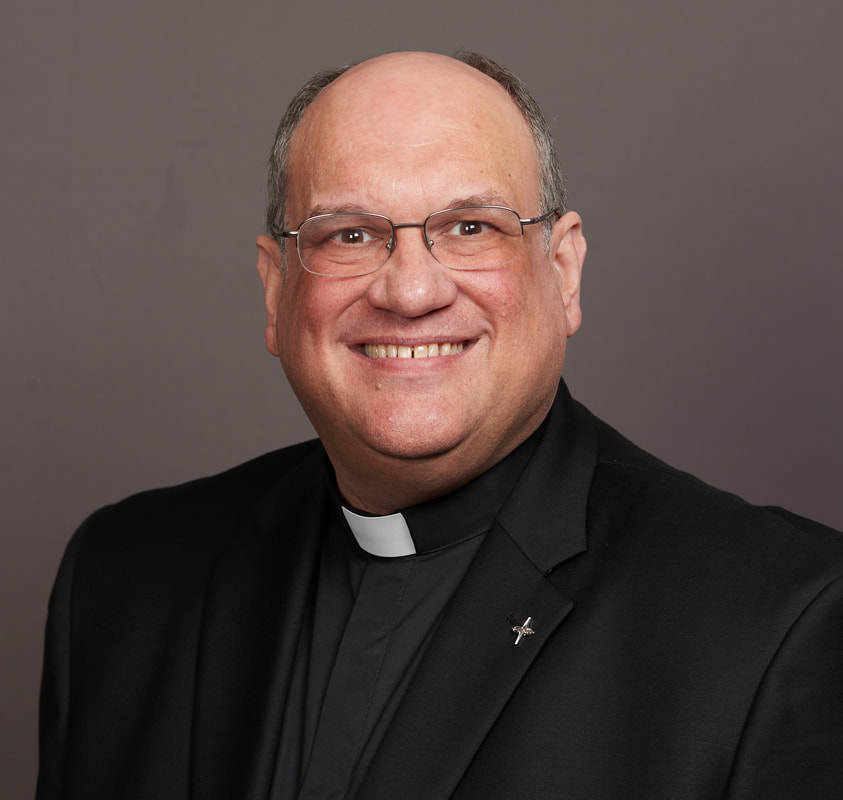
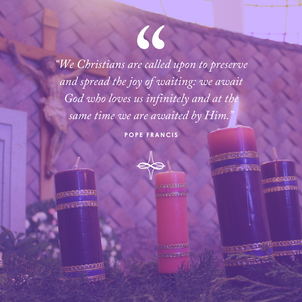
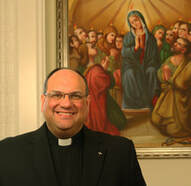
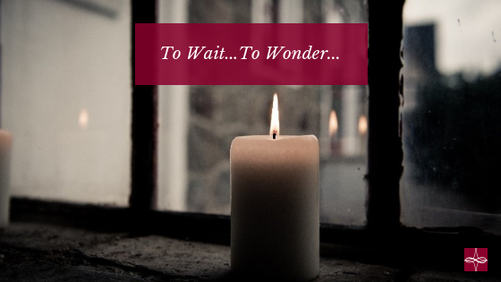

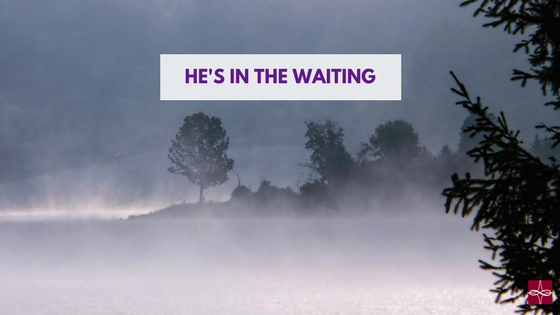

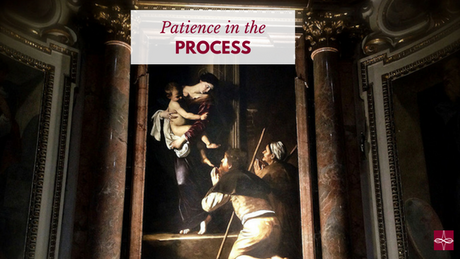

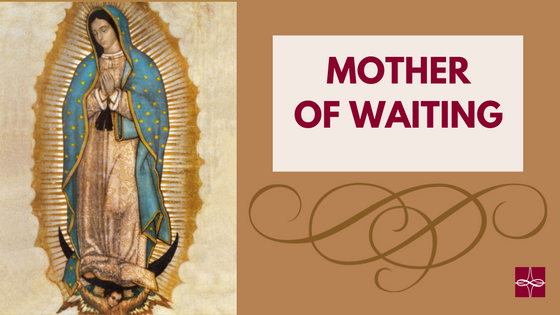

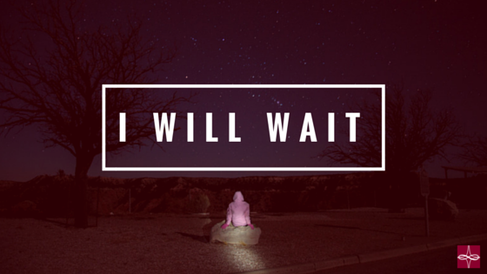


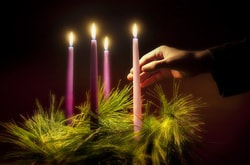
 RSS Feed
RSS Feed